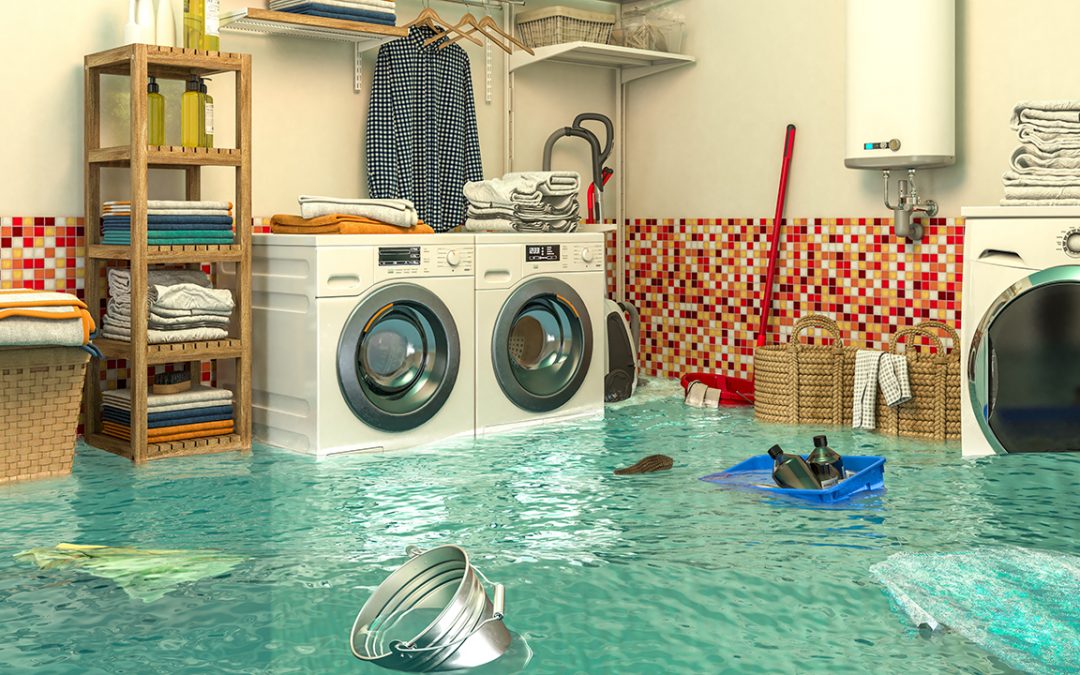Broken Hose Blues…
“Ned” Meg quietly suggested. “please go and move the wet sheets to the dryer…now GO!”
Ever the obedient and willing husband, I dragged myself up from my comfy chair and grumbled my way to the laundry room, opened the door and freaked out! The floor was flooded with water and a high-pressure stream was shooting across the room. Holy Moley!
Being the highly-trained home inspector that I am I waded barefoot into the water to figure out what was happening. Hearing my shouts, the Marvelous Meggy came to the door and told me: “get out of that water in your bare feet you dummy- you’re going to get electrocuted!” (See she does read my articles) I backed out and got some rubber-soled sneakers on and waded back in to turn off the power (the panel is in the laundry and was getting hosed down by the leak) and then I went and turned the water off at the washer connections…This was looking bad, Meg was looking at all the sodden clean clothes and the piles of junk that winds up in the laundry room—all soaked…and then there was the floor. Did I need to call the insurance company?
Fortunately, we had installed an LVT floor in the laundry (luxury vinyl tile) over a waterproofed surface and the water was draining down the hole in the floor where the dryer vent passes so the rest of the house was spared. Which brings me to the subject of this article: ruptured washing machine hoses. You see, the source of the madness was a burst hose. We all have these and they are all subject to rupturing-so read carefully.
Most washer hoses are black rubber (including the ones that come with the machines) and since they are always under pressure and because rubber or the steel hose connectors deteriorate then they will eventually break. Research tells me they have a life expectancy of 5 years…my washing machine is 8 years old…so right on time.
Further research showed me that there are better hoses than these typical black rubber ones, including hoses that are reinforced with braided stainless steel. This also included stainless steel hose connectors on the ends which by the way was where my old hose failed. The regular steel connector rusted out and simply broke off-why would they make water hoses with connectors that can rust? How about brass or stainless steel? I know the answer to that…to sell more hoses! Arghh…
After a trip to the hardware store where I purchased two, stainless reinforced hoses for $18.00 each I went home and discovered that old hose connector had rusted to the wall connections and had to be cut away…This had turned into a five hour ordeal not to mention all the wet stuff that is still on my front porch…finally, I installed the new fancy hoses and was back in business.
It turns out that there is an even fancier washer hose called the smart hose. This has a cool innovation called a check valve built into it. The idea is that when a sudden increase in water occurs such as when the hose blows apart- then the built-in valve will stop the flow of water. A great idea but apparently with some problems. According to Google (who knows all) there have been a number of unhappy customers that say that it works too well. That with some washers it will turn off when the washer calls for water- or will partially close making it take even more hours to wash a load of clothes than it already takes. So, the Dominicks opted for the regular stainless reinforced hoses…I think you should too.
Ned Dominick hates it when the stories are about himself. He and his qualified inspectors have examined over 28,000 local homes since 1978. For more go to Ned/s website at www.housetalk.net or give him a call at 478-738-0893.


Recent Comments